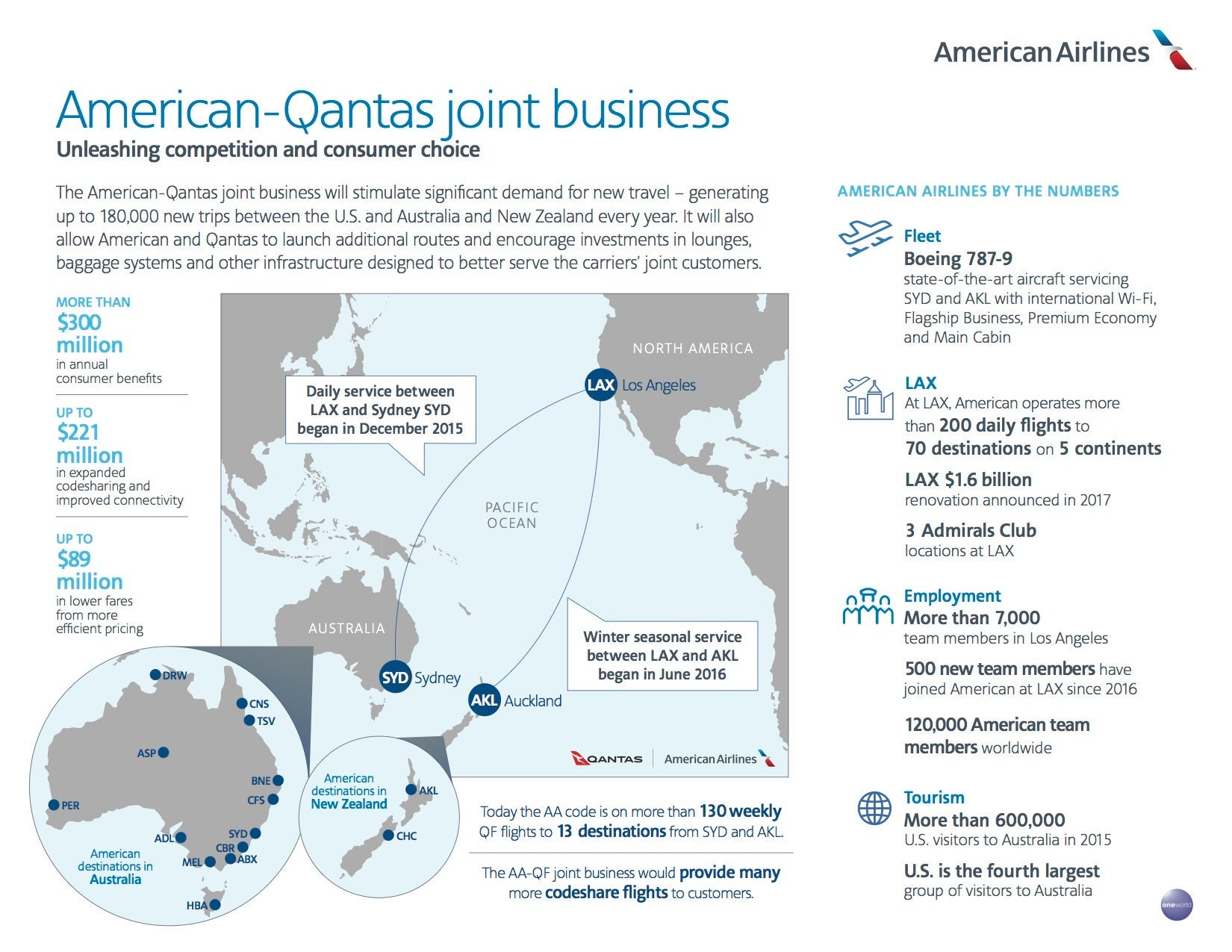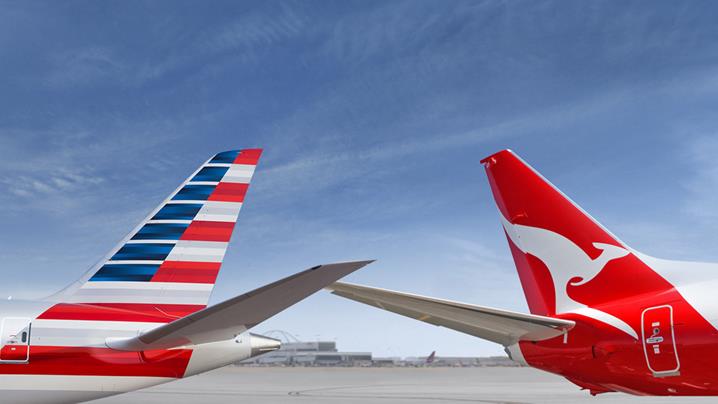American and Qantas Revive Push for Joint Venture
American Airlines and its Oneworld partner Qantas have submitted another application to form a joint-venture business. The two airlines tried to increase ties in 2016 but were denied their application by the US Department of Transportation on grounds that the move would hurt competition.
According to American's press release, the joint venture would lead to lower fares and will "give American and Qantas the opportunity to launch additional routes between the U.S. and Australia and New Zealand."
American released this fact sheet with the relationship's potential benefits and included new research that the DOT required when they first rejected the application.

Joint ventures allow carriers to form a partnership that allows them to act almost as one airline (on certain routes). They would be able to coordinate flight schedules, expand codesharing and make it easier to book connecting flights.
The relationship will produce "more than $300 million in annual consumer benefits, $221 million in expanded codesharing and improved connectivity, and up to $89 million in lower fares from more efficient pricing," according to the fact sheet.
American already has joint ventures with British Airways, Finnair and Iberia on transatlantic routes and with Japan Airlines on transpacific routes. Qantas and American already codeshare on some of their flights, and if approved, this move would drastically increase that.

The airlines threatened to end some of their services and "further reduce codesharing" if they aren't approved. American's statement included these examples:
Qantas may be forced to reduce the frequency of, downgauge or potentially cancel its A380 service between Sydney and Dallas/Fort Worth, and American may further reduce its services between Los Angeles and Sydney and Auckland. These routes rely on codeshare support from each airline's feeder network via their respective hub cities to be economically viable.
If Qantas and American's plan is approved, it would essentially remove one less competitor on those routes — and less competition typically means higher fares. Only United, Delta and Virgin Australia operate nonstop service between the US and Australia — and Delta and Virgin already formed a joint venture in 2011.
TPG featured card
at Capital One's secure site
Terms & restrictions apply. See rates & fees.
| 5X miles | Earn 5X miles on hotels, vacation rentals and rental cars booked through Capital One Travel |
| 2X miles | Earn unlimited 2X miles on every purchase, every day |
Pros
- Stellar welcome offer of 75,000 miles after spending $4,000 on purchases in the first three months from account opening. Plus, a $250 Capital One Travel credit to use in your first cardholder year upon account opening.
- You'll earn 2 miles per dollar on every purchase, which means you won't have to worry about memorizing bonus categories
- Rewards are versatile and can be redeemed for a statement credit or transferred to Capital One’s transfer partners
Cons
- Highest bonus-earning categories only on travel booked via Capital One Travel
- LIMITED-TIME OFFER: Enjoy $250 to use on Capital One Travel in your first cardholder year, plus earn 75,000 bonus miles once you spend $4,000 on purchases within the first 3 months from account opening - that’s equal to $1,000 in travel
- Earn unlimited 2X miles on every purchase, every day
- Earn 5X miles on hotels, vacation rentals and rental cars booked through Capital One Travel
- Miles won't expire for the life of the account and there's no limit to how many you can earn
- Receive up to a $120 credit for Global Entry or TSA PreCheck®
- Use your miles to get reimbursed for any travel purchase—or redeem by booking a trip through Capital One Travel
- Enjoy a $50 experience credit and other premium benefits with every hotel and vacation rental booked from the Lifestyle Collection
- Transfer your miles to your choice of 15+ travel loyalty programs
- Top rated mobile app


